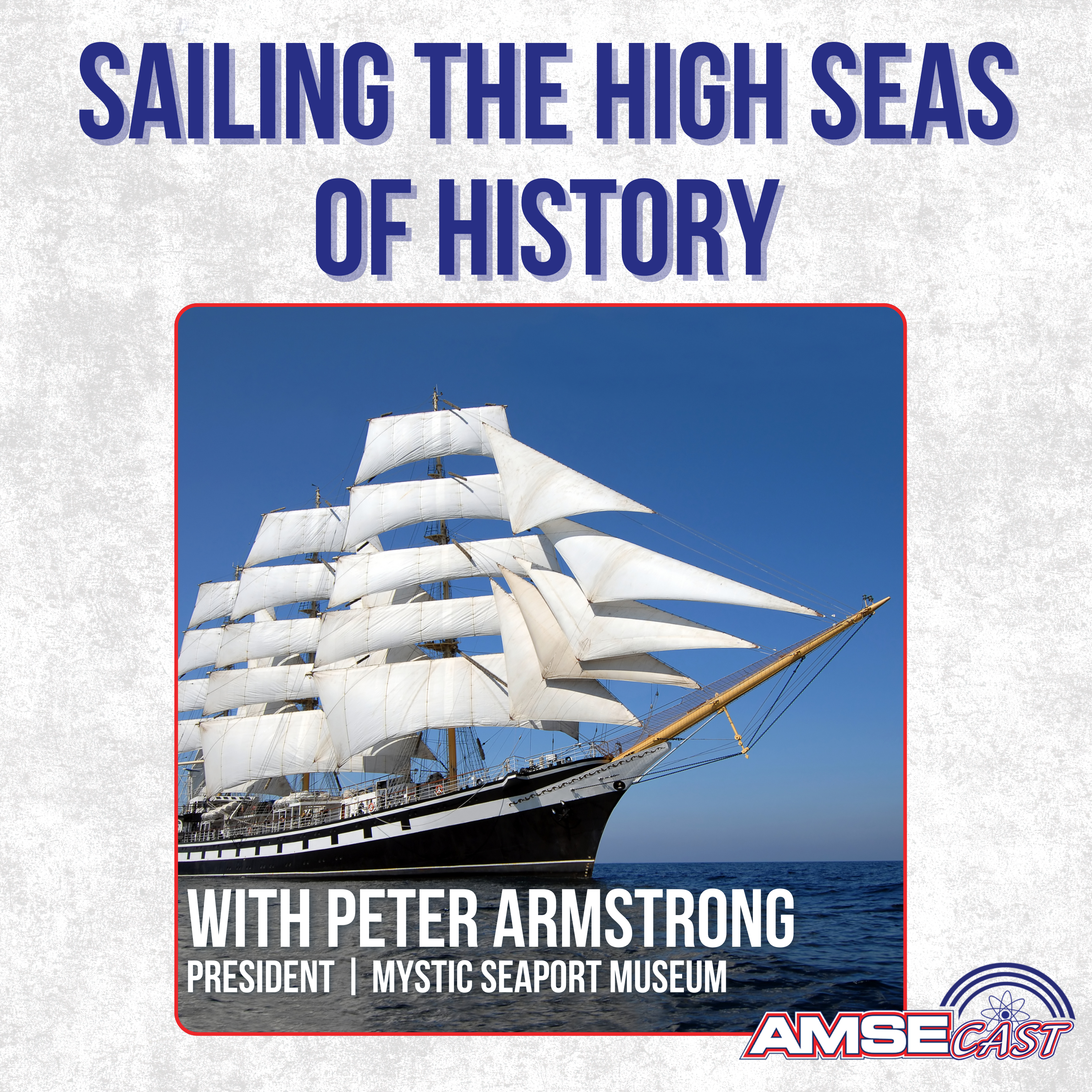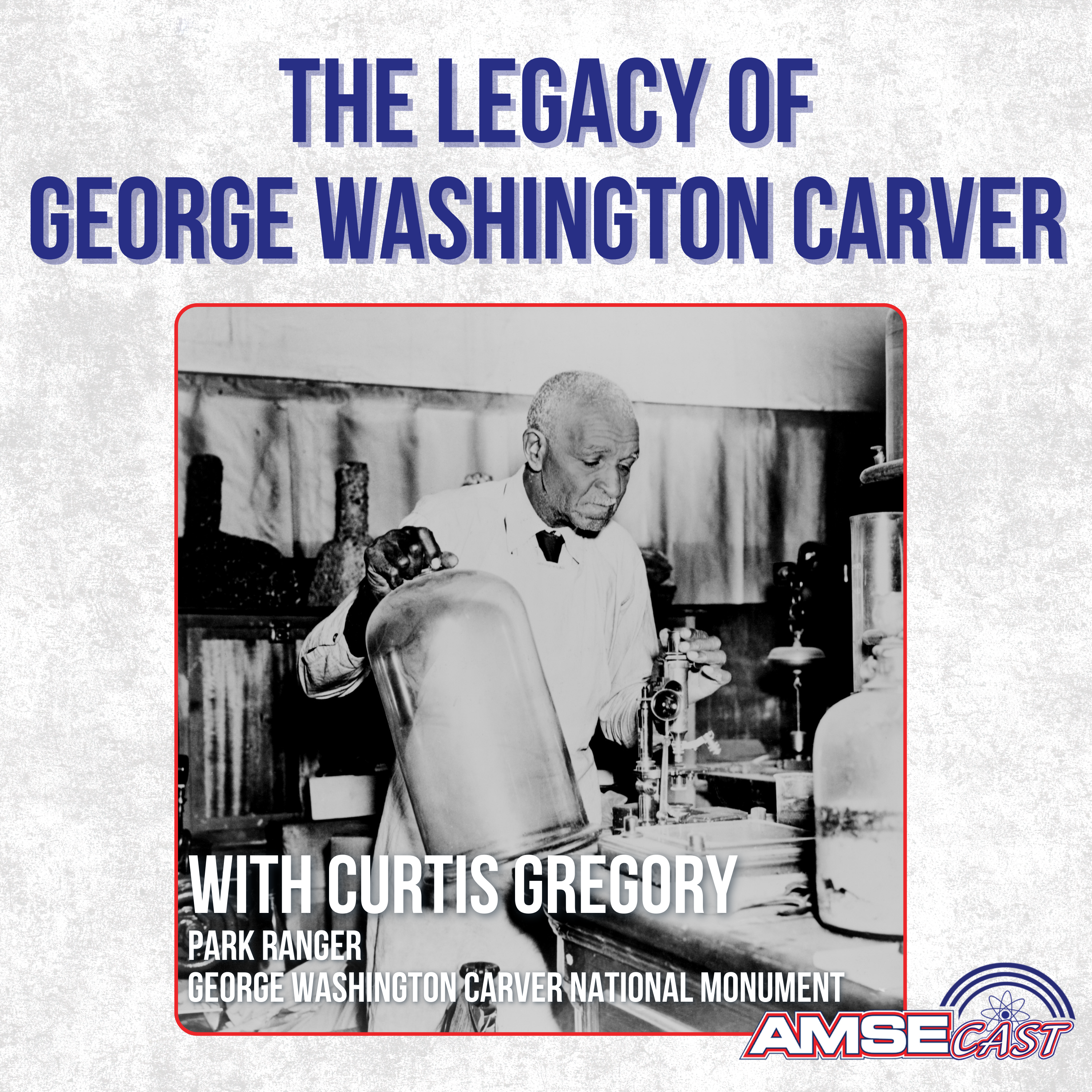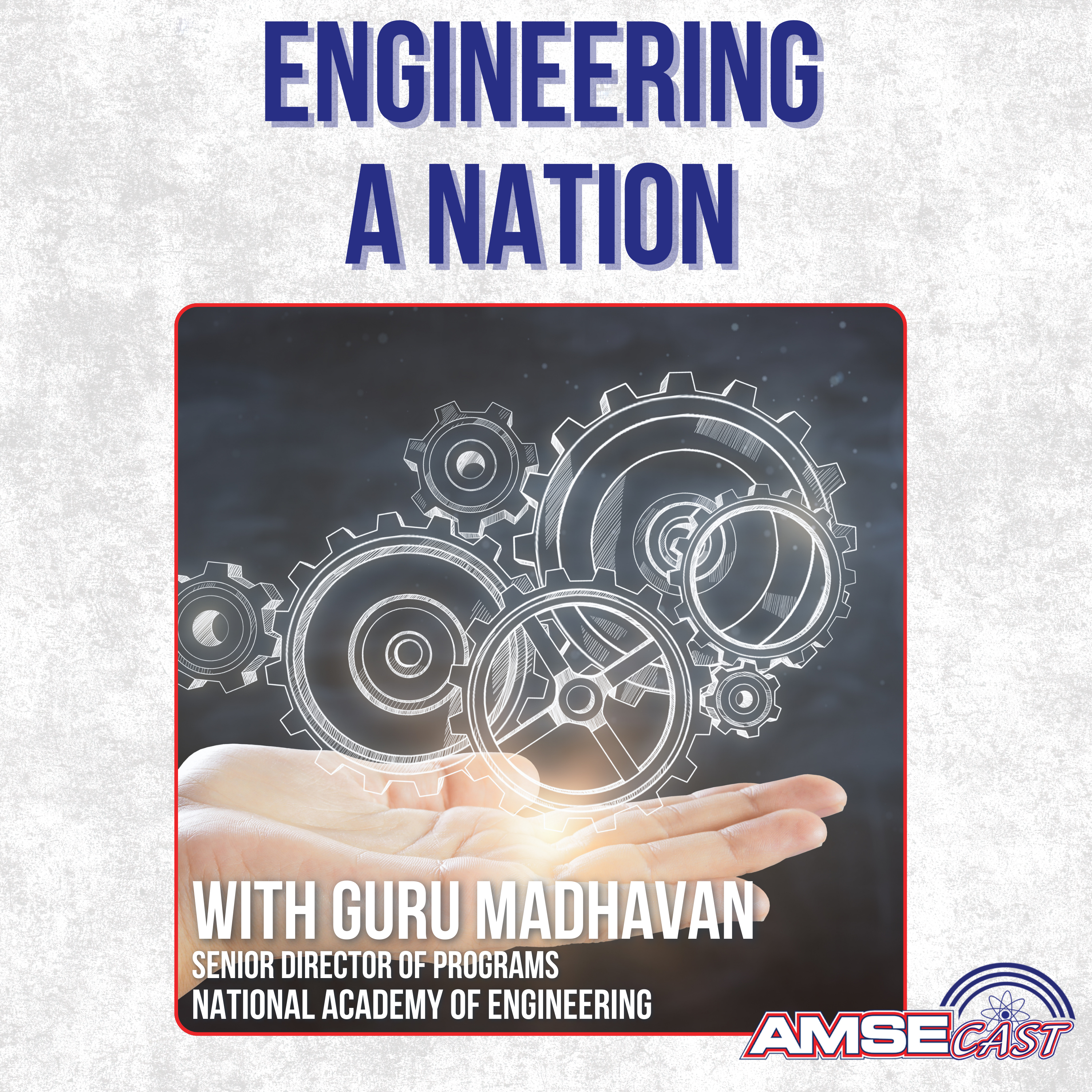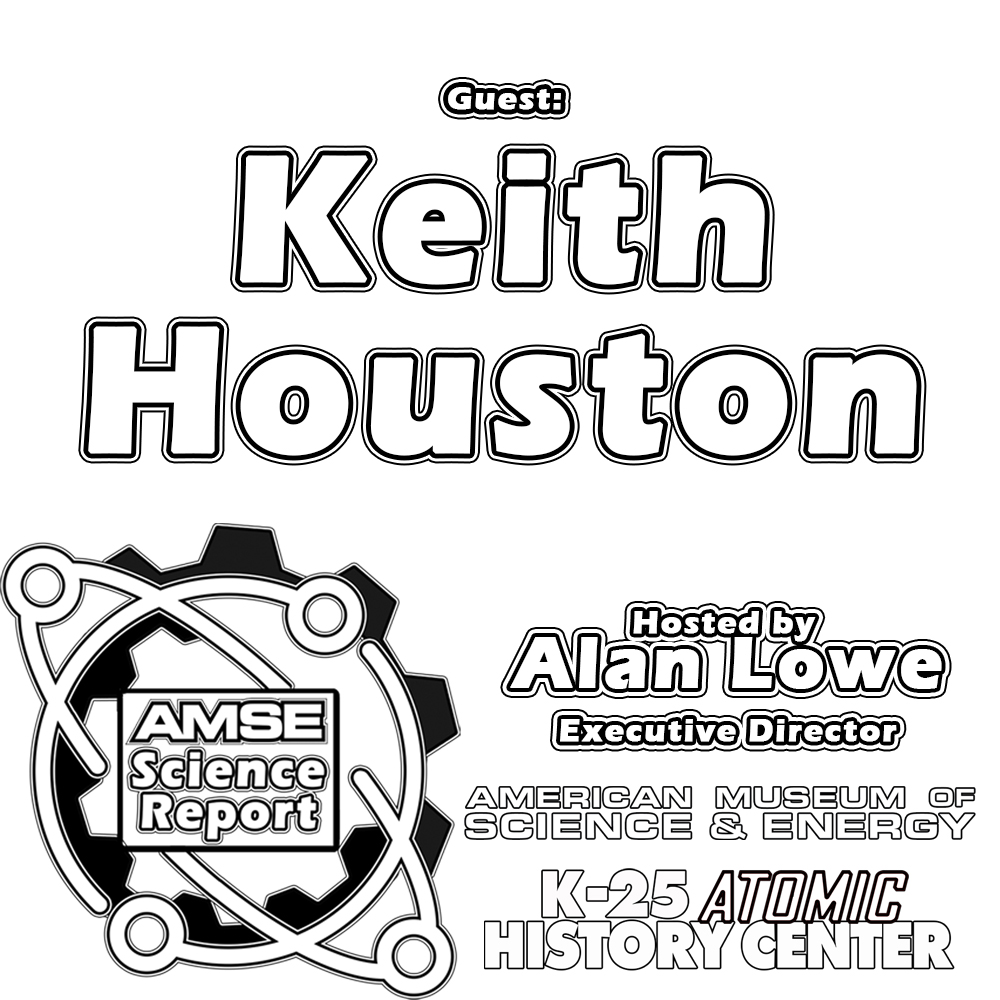Episodes
Tracks Across America with Simon Cordery
Alan Lowe speaks with Dr. Simon Cordery about the transformative role of railroads in American history. From the Baltimore and Ohio Railroad in 1828 to a national network by 1916, Cordery details how rail shaped commerce, ind...
General MacArthur’s War Path with Walter Borneman
Alan talks with historian Walter Borneman about his book MacArthur at War: World War II in the Pacific. They examine General Douglas MacArthur’s early career, his leadership in the Philippines, and his strategic command from ...
AMSEcast with guest Tom Zoellner
Uranium: War, Energy, and the Rock that Shaped the World, Author speaks
Inside the National Air and Space Museum with Margaret Weitekamp
Alan Lowe speaks with Dr. Margaret Weitekamp of the Smithsonian’s National Air and Space Museum about its transformation ahead of America’s 250th anniversary. They explore how new exhibits, immersive storytelling, and iconic ...
Inside the Invention Factory with Kathleen Carlucci
Kathleen Carlucci, director of the Thomas Edison Center at Menlo Park, joins AMSEcast to discuss Edison’s lasting impact on American innovation. From his early love of telegraphy to his system-wide inventions in sound, light,...
A Library of Treasures in American History with Josh Levy
Dr. Josh Levy is a historian of science and technology at the Library of Congress. In this episode of AMSEcast, he highlights key figures and artifacts from all across America’s innovation history. From Samuel Morse’s early t...
Sailing the High Seas of History with Peter Armstrong
Alan is joined by Peter Armstrong, president of Mystic Seaport Museum, to continue our celebration of 250 years of American innovation. Peter reflects on his 25 years in museum leadership and shares insights into Mystic’s long shipbuilding history....
The Legacy of George Washington Carver with Curtis Gregory
AMSEcast continues celebrating 250 years of American innovation with Curtis Gregory. A park ranger at the George Washington Carver National Monument, Curtis sits down with Alan to share Carver’s inspiring journey from enslavement to becoming a...
Engineering a Nation with Guru Madhavan
Alan speaks with Dr. Guru Madhavan at the National Academy of Sciences in Washington, DC, as we continue our series marking 250 years of American innovation. Guru, a leader at the National Academy of Engineering, explores the Academy’s Civil War...
The History of Spies with Andrew Hammond
AMSEcast celebrates 250 years of American innovation with Dr. Andrew Hammond, historian and curator at the International Spy Museum. Hammond explores the evolution of intelligence and espionage, from trial-and-error codebreaking by pioneers like the...
Inside the U.S. Mint with Don Bennett
We continue to celebrate 250 years of American innovation with Don Bennett, Deputy Associate Director of the U.S. Mint’s Manufacturing Directorate. He joins Alan on this episode of AMSEcast to talk about the Mint’s history, operations, and...
The Presidents and Science
Presidents enrich the scientific process
AMSE Science Report with Mark Miodownik
A gas is a lot to consider
Marie Curie’s Legacy with Dava Sobel
Award-winning science writer Dava Sobel returns to AMSEcast to discuss her latest book, The Elements of Marie Curie. She and host Alan explore Curie’s groundbreaking research, her struggles against societal barriers, and her enduring impact on...
Innovation & Policy with Sudip Parikh
With support from the Institute of Museum and Library Services, AMSEcast is celebrating 250 years of American innovation with expert interviews. CEO of the American Association for the Advancement of Science and executive publisher of Science, Dr....
Taking Risks and Innovating Along the Way with Al Romig
Executive Officer of the National Academy of Engineering, Dr. Al Romig joins this special edition of AMSEcast, recorded at the National Academy of Sciences Building in Washington. Dr. Romig has led a distinguished career including leadership roles at...
The World of Uranium with Tom Zoellner
Tom Zoellner, award-winning writer and Chapman University professor, joins AMSEcast to discuss his book Uranium: War, Energy and the Rock that Shaped the World. He and Alan discuss the discovery of uranium, its radioactive nature, and its historical...
Exhibiting the Best of the Smithsonian with Jennifer Collins and Nico…
Alan takes a trip to the Smithsonian National Museum of Natural History to speak with Nicole Webster, the Manager of School and Teacher Programs, and Jennifer Collins, Learning Experience Manager for Exhibits and Initiatives. Broadcasting from the...
Materials and All Matters of Science with Mark Miodownik
Materials scientist and BBC presenter Dr. Mark Miodownik joins AMSEcast to discuss his latest book, It’s a Gas. He explores the hidden world of gases, from steam’s role in electricity production to methane’s surprising history. The conversation...
AMSE Science Report with guest Keith Houston
Empire of the Sum: The Rise and Reign of the Pocket Calculator author Keith Houston joins us
AMSE Science Report with guest Saul David
Author Saul David talks about this book, Crucible of Hell: The Heroism and Tragedy of Okinawa, 1945
Nuclear Safety Innovation with Ashley Stowe
Dr. Ashley Stowe is the director of the Oak Ridge Enhanced Technology and Training Center (ORETTC) at Y-12 National Security Complex, and he joins AMSEcast to discuss his career and the mission of Y-12. With a PhD in chemistry and an MBA, Dr. Stowe...
AMSE Science Report with Katie McKissick
The DNA that makes you who you are























